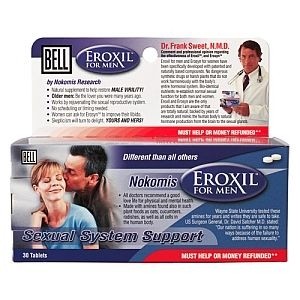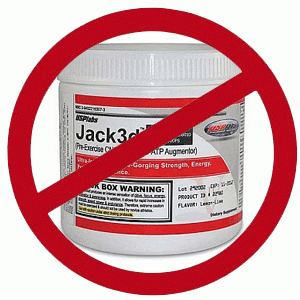AHPA: If DMAA is in geranium, synthesized version is a lawful dietary ingredient

Its comments came after the FDA sent warning letters to 10 manufacturers and distributors of DMAA supplements stating that synthetically-produced DMAA is "not a dietary ingredient and is not, therefore, eligible to be used as an active ingredient in dietary supplements".
The letters also alleged DMAA could raise blood pressure and "increase the work of the heart such that it could precipitate a cardiovascular event".
However, these serious allegations were made “without citation”, noted AHPA president Michael McGuffin, who said recently published studies on healthy volunteers showed DMAA was in fact “generally well tolerated”.
AHPA disagrees with the agency’s view
As for the regulatory status of DMAA, meanwhile, the FDA’s crackdown was based on an assumption - with which the AHPA strongly disagrees - that synthetic copies of botanical constituents are not dietary ingredients, he added.
Indeed, this is one of the most hotly contested aspects of the FDA’s controversial draft guidance on new dietary ingredients (NDIs), he said.
"AHPA disagrees with FDA's view that human-synthesized constituents of botanicals are not dietary ingredients lawful for use in supplement products.
"The agency's position on this ignores the fact that synthesized vitamins, minerals, amino acids, and botanical constituents were already marketed at the time the Dietary Supplement Health and Education Act was passed.
“In AHPA's view, if DMAA exists in geranium through the plant's own synthesis processes, human-synthesized DMAA is also a lawful dietary ingredient."
New data on DMAA source to be published shortly
The AHPA recently told members not to label DMAA as a constituent of geranium in their products, which many observers took as an acknowledgement that even if geranium does contain DMAA, the DMAA used in supplements is probably syntheized given the quantities required and the costs involved.
As to whether geranium contains DMAA at all, which analytical experts contacted by NutraIngredients-USA say they strongly doubt, new data was awaiting publication, claimed McGuffin.
“In a statement issued last September, Cantox Health Sciences International asserted that two analytical laboratories have demonstrated the occurrence of DMAA in the geranium plant, Pelargonium graveolens, which would corroborate data originally published in 1996 [the controversial Ping et al paper].
"AHPA looks forward to publication of this new analytical work.”
What happens next?
Asked what legal avenues were open to recipients of the warning letters should the FDA enforce the draft guidance and seize the supplements in question if the firms do not voluntarily recall them, McGuffin said: "In its warning letters, FDA expresses a willingness to use its enforcement authorities, including 'seizure of violative products and injunction against the manufacturers and distributors'.
"If the agency carries out these threats, the avenue open to the warning letter recipients will be the US court system."
FDA: AERs on DMAA ‘concerning’, but warnings were issued because firms had not submitted NDIs
Asked on what basis it had stated that DMAA might cause cardiovascular problems, an FDA spokeswoman said it had received 42 adverse event reports (AERs) pertaining to DMAA.
But she added that “while the AERs, plus the known activity of the ingredient in question are concerning”, the warning letters were sent because the recipients had not submitted NDI notifications for their DMAA supplements.
Asked how the FDA would respond if they could prove the DMAA in their products is a synthetically produced copy of a botanical constituent (from geranium) that has been safely consumed in the food supply, she added:
"We need to refocus to point out that 1) these are open cases; the firms have 15 days to respond and we are awaiting their responses; 2) the violation cited in the warning letter was a failure to file NDIs per the statutory requirement, which renders the products adulterated as such and at present, that's the matter at hand, anything else at this time is speculative."
Industry reaction to FDA crackdown
The FDA's action was immediately blasted by supplement retailing giant GNC - click here - but welcomed by analytical testing experts, many of whom have long argued that the DMAA is not found in geranium.
None of the 10 firms targeted was prepared to comment at this stage, although several said they would prepare statements in the coming days.
USP Labs told us it was still preparing a response but referred us to several safety studies affirming the safety of its pre-workout supplements Jack3D and OxyElite Pro.
Dept of Defense DMAA probe ‘ongoing’
A spokeswoman for the Department of Defense told us there was nothing to report - yet - on its probe into the safety of DMAA following the deaths of two soldiers found to have the stimulant in their blood.
She added: "The scientific review of dietary supplements containing DMAA is on-going."
Click here to see GNC's reaction to the FDA crackdown and background on DMAA.
Click here to get reaction from the CRN, NPA, ABC and analytical testing experts plus a list of the products and firms targeted.
Click here to see the NutraIngredients-USA DMAA timeline.
Click here to read about the latest wave of class action lawsuits filed over DMAA.









